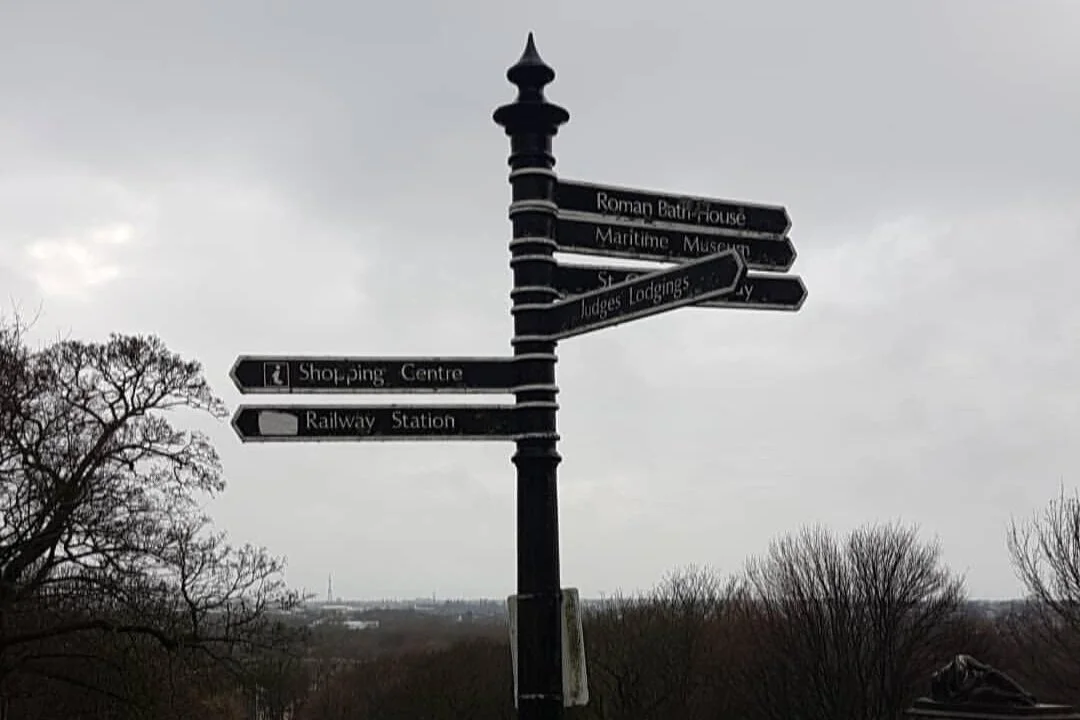My Coaching Journey
In spring 2019 I finally undertook a coaching course
Three separate trips up to bleak but beautiful Lancaster later - with intense studying, listening, practising and learning, a few tears, and a fair bit of wine in the interim - I passed the assessment and gained my accreditation. This achievement had been years in the making…
Put simply, professional coaching is the best way to support an individual, team, organisation and society to reach its purpose and potential.
How I came to train as a coach
I was first introduced to coaching around eight years ago, at a time when I was feeling well and truly stuck and thoroughly frustrated in my career. I was chomping at the bit to develop or move forward in some way. But I felt completely fuzzy headed about how to do it (not to mention what to do and which direction to head in). I was lucky enough to work with the brilliant Emma Haughton at that time. She sowed the seeds for what came next.
In the months and years that followed I noticed more and more colleagues either benefit from coaching themselves or undertake formal training to develop their own coaching practice.
Then, in 2016, I lucky enough to be accepted onto Clore Leadership’s Emerging Leaders course - a week-long intensive residential course to develop and explore leadership skills. On one of the days we had an introductory session on coaching with the excellent Deb Barnard and Isabel Mortimer from Relational Dynamics 1st (RD1st). It struck a chord and I knew I wanted to do the formal training and start flexing my coaching muscles for real. As a follow on, I was fortunate to receive additional mentoring from the excellent Isabel. Over several months she supported me through a big and scary professional change (also recommending me the first coaching book I read, Co-Active Coaching).
Three years after that, I took the plunge. Got there in the end!
What is it about coaching?
The thing I love about coaching - the thing I started to understand on the Emerging Leaders course - is that it is positive and proactive and centres on true listening skills. I like to think positively and I like to take action - I honestly think you get more out of life that way. But it isn’t always easy and sometimes we all need help to clarify our perspective and our purpose in order to take positive action.
And when we feel listened to - really listened to - it is liberating, comforting, validating and so many important things. When we really listen, actively, to others of ourselves, profound and positive change starts to happen.
So, if you’re feeling stuck, dissatisfied, unfulfilled or unsure, coaching could be just the thing you need.
Some training insights
To regurgitate the coaching manual in an attempt to share what I learned would be tedious. Instead, I’ll share a bit about the insights I gained and the experience I shared with my fellow coaches.
Listening is everything.
Time keeping is everything else.
Trust can be built - and broken - quickly.
The coachee’s successes and failures are not yours.
Always ask permission.
Whilst coming to understand the above (and so much more), I met a worked with a bunch of excellent and inspiring people from all corners of the UK, as well as two marvellous trainers in Debs and Claire from RD1st. I found the course very challenging - I knew I was capable, but jeez did it make my brain hurt! Were it not for the generous and supportive atmosphere within the group, my ability to learn and absorb would have been far less - and my experience the poorer for it.
Which brings me to the most important skill I learned about - ‘holding the space’. This phase is used a lot in coaching and the training. It means creating and maintaining a sense of safety in the room, so that the coachee has the time and freedom to do their most honest and useful thinking, without fear of judgement. I experienced first hand the powerful effect of feeling safe to be vulnerable, share hopes and fears, and how that unlocked my thinking and made me more receptive to learning and developing. It may not seem like ground-breaking stuff, but it’s harder than it sounds - and really resonated in a way I hadn’t experienced until that point.
And it was a wonderful bonus to have developed connections with the folk in the room, many of whom I’ve stayed in touch with, seen socially and even gone on to work with professionally since doing the course.
Sarah, Jen, Danielle, Cindy and Denise - some of the brilliant coaches I trained with - at Lancaster train station after our coaching exams. I’m behind the camera.
As part of my coaching course with RD1st, I had to write a case study and a discourse on coaching. The case study is confidential, but the discourse is here in this blog post.




